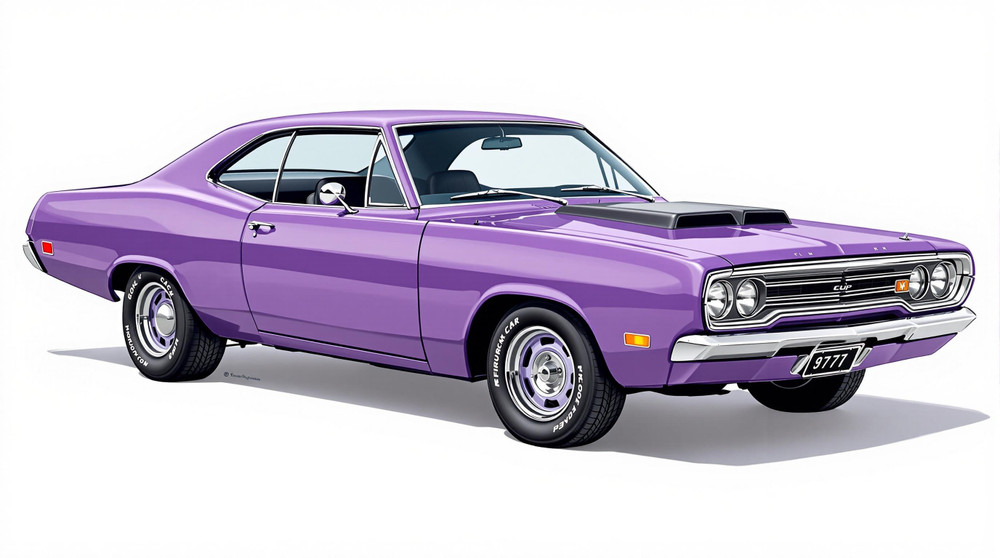Image of 1971 Plymouth Cricket, Note: These illustrations use artistic license and may differ from actual historical models.
Performance Metrics
Fundamental Metrics
Emotional Appeal
MMP Rating
| Engine Specifications | |
|---|---|
| Engine: | 1.5L I4 |
| Displacement: | 91.5 cu in (1,498 cc) |
| Horsepower: | 70 hp |
| Torque: | 80 lb-ft |
| Compression Ratio: | 8.5:1 |
| Ignition System: | Electronic |
| Cooling System: | Water-cooled |
| Performance Specifications | |
| 0-60 Time: | 17 seconds |
| 1/4 Mile Time: | 20 seconds |
| Top Speed: | 90 mph |
| Transmission and Drive | |
| Drive Type: | RWD (Rear Wheel Drive) |
| Transmission Type: | 4-speed manual |
| Fuel and Efficiency | |
| Fuel System Type: | Carburetor |
| MPG: | 25-30 mpg |
| Dimensions and Brakes | |
| Brakes: | Front disc, rear drum |
| Wheelbase: | 96.0 in |
| Weight: | 2,000 lbs |
Note: Specifications for classic cars are given to the best of our ability, considering the limited and variant data available.
1971 Plymouth Cricket: A Forgotten Gem in Automotive History
Amidst the muscle car era's thunderous roars, the 1971 Plymouth Cricket chirped a subtler tune of practicality and economy. Born from a partnership between Chrysler and the British manufacturer Rootes Group, the Cricket was Plymouth's answer to the fuel-efficient imports flooding the American market. This compact sedan, originally known as the Hillman Avenger in its native UK, was rebranded for American consumers but struggled to leave a lasting mark in an era dominated by power and performance.
What makes the Cricket particularly notable is its role as an early attempt by a major American automaker to tackle the rising demand for smaller, more economical cars—a trend that would only gain momentum in subsequent decades.
Design and Innovation
The exterior of the 1971 Plymouth Cricket boasted a straightforward, no-frills design typical of early '70s economy cars. Its boxy silhouette was punctuated by round headlamps and a simple grille, giving it an unassuming yet friendly appearance. Inside, occupants were greeted with a functional cabin featuring modest materials aimed at affordability rather than luxury. Despite its budget-conscious build, the Cricket did offer some innovative touches for its time, such as rack-and-pinion steering and disc brakes at the front—a rarity among American compacts of that period.
Color options for the Cricket ranged from subdued earth tones to brighter hues, with popular choices including Sunflower Yellow and Rallye Red. The most common body style was the four-door sedan, though a two-door version and a station wagon variant were also available for those seeking different levels of practicality and style.
Historical Significance
The 1971 Plymouth Cricket's historical significance lies not in groundbreaking design or technological leaps but rather in its embodiment of an American automaker's early efforts to adapt to changing consumer preferences. While it didn't achieve the success of some imported competitors, it paved the way for future domestic compact cars that would eventually find their footing in the market.
Performance and Handling
The Cricket's performance was modest, with its 1.5-liter four-cylinder engine propelling it to a top speed that was adequate for city driving but less so on highways. Acceleration from 0-60 mph was leisurely by today's standards but typical for economy cars of that time. Handling was generally considered nimble for an economy car, though not sporty by any stretch. Drivers could expect a relatively smooth ride on urban roads but might find it less composed over rougher surfaces or at higher speeds.
The driving experience of the Cricket was characterized by simplicity; there were no roaring engines or aggressive exhaust notes here—just the hum of a small engine doing its best to provide efficient transportation.
Ownership Experience
As a daily driver, the Plymouth Cricket offered basic transportation with an emphasis on fuel economy over performance or comfort. Maintenance and reliability were typical for compact cars of that era; while not as robust as some competitors, repairs were generally straightforward due to the vehicle's simplicity.
Fun Facts
The Plymouth Cricket may not have been a blockbuster hit in its day, but it does hold a quirky place in automotive history. For instance, despite being marketed as suitable for American roads, it retained many British car characteristics that made it somewhat of an oddity. Celebrity ownerships are scarce given its humble nature, but it has appeared sporadically in films and television shows set during its production years.
Collector's Information
Today, finding a 1971 Plymouth Cricket can be quite challenging; production numbers were relatively low compared to other models of the time. As such, Crickets are rare sights at classic car shows or auctions. While exact production figures are elusive, estimates suggest that fewer than 10,000 units found homes on American soil. In terms of value range, well-preserved examples could fetch anywhere from $2,000 to $10,000 depending on condition and originality—making them an affordable entry point into classic car ownership.
Conclusion
The 1971 Plymouth Cricket may not have been a standout performer or sales success during its time; however, its existence highlights an interesting chapter in automotive history where American manufacturers began responding to shifting market demands. Although overshadowed by more iconic vehicles from Plymouth's lineup, the Cricket remains a fascinating footnote worth remembering by classic car enthusiasts and historians alike.
1971 Plymouth Cricket Catalog of Parts
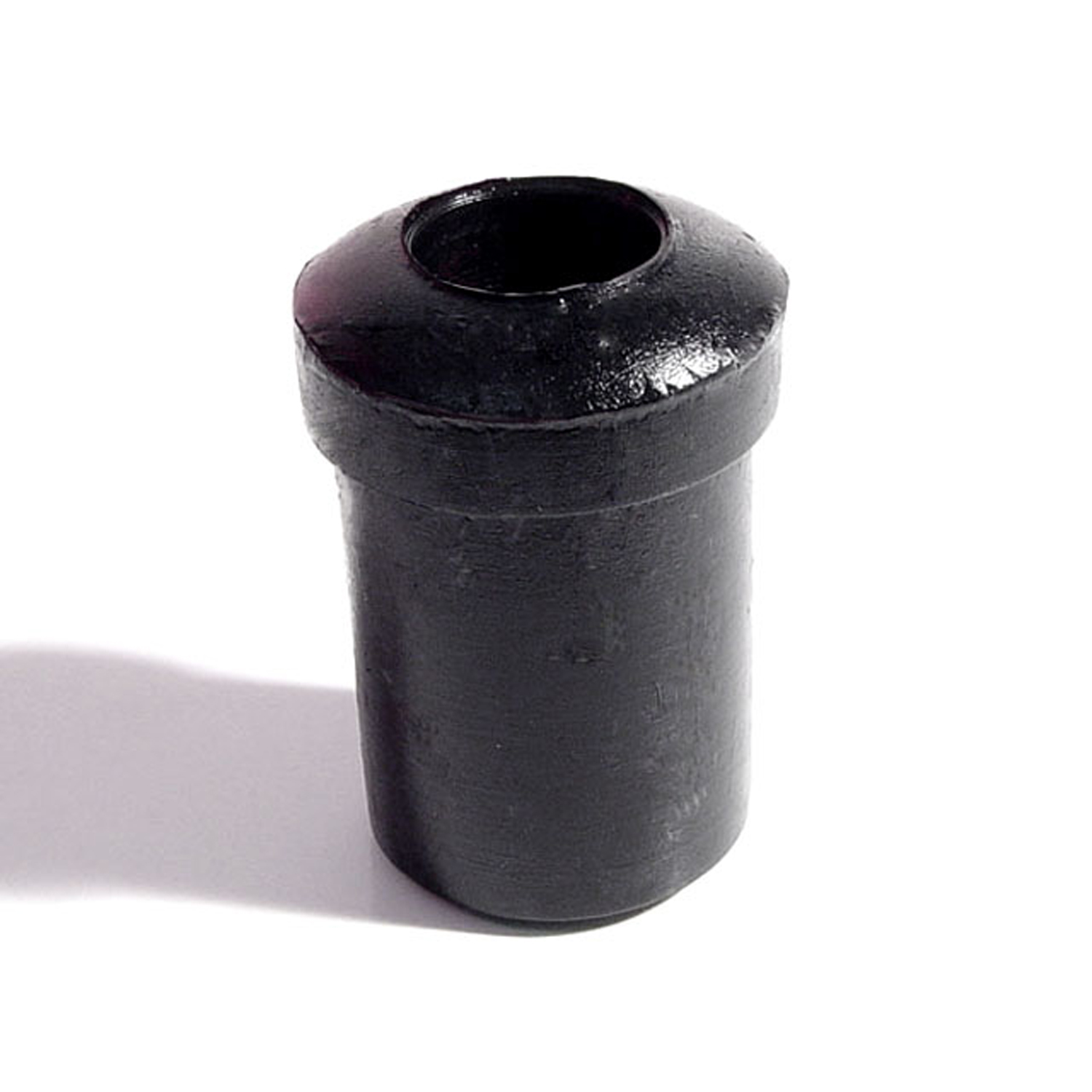 1971 Plymouth Cricket Spring and Shackle Bushing. 1" bottom O.D-BN 20Spring and Shackle Bushing. 1" bottom O.D. X 1-5/8" high, with 9/16" I.D. Each
1971 Plymouth Cricket Spring and Shackle Bushing. 1" bottom O.D-BN 20Spring and Shackle Bushing. 1" bottom O.D. X 1-5/8" high, with 9/16" I.D. Each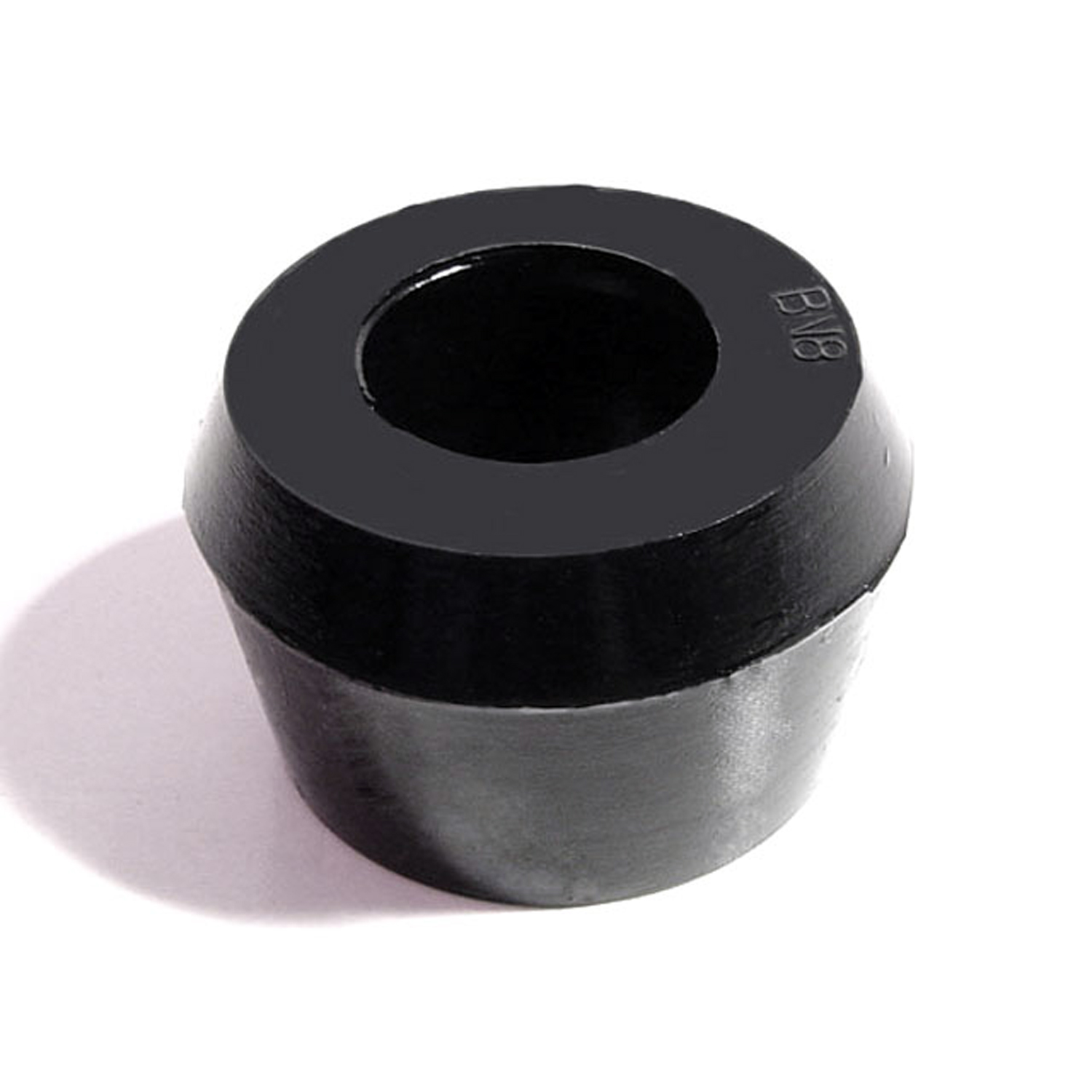 1971 Plymouth Cricket Shock Absorber Grommet. 1-1/4" bottom O.D-BN 8Shock Absorber Grommet. 1-1/4" bottom O.D., 1" high, with 3/4" I.D. Each
1971 Plymouth Cricket Shock Absorber Grommet. 1-1/4" bottom O.D-BN 8Shock Absorber Grommet. 1-1/4" bottom O.D., 1" high, with 3/4" I.D. Each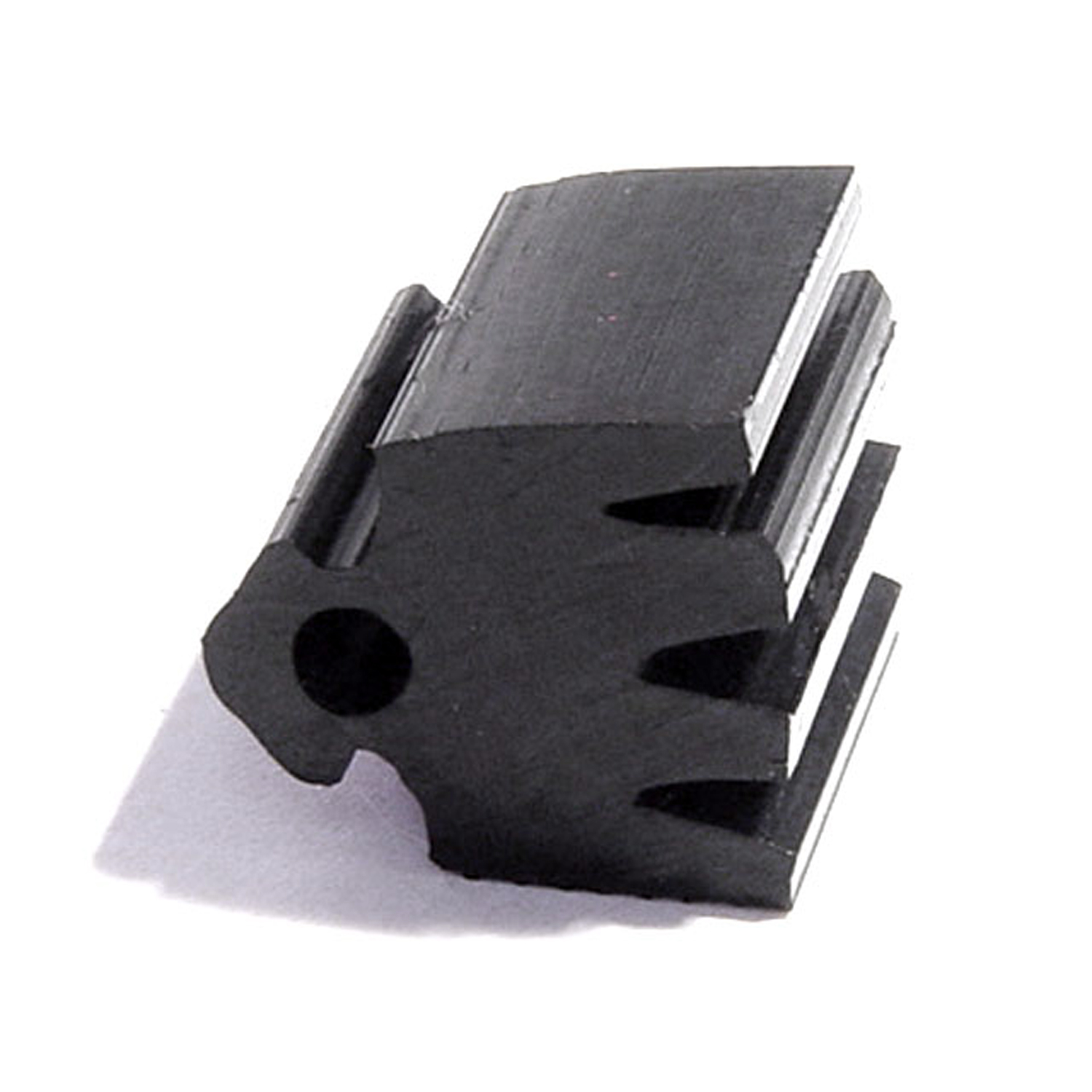 1971 Plymouth Cricket Door Bumper. 5/8" wide. Made from extrusion. Each-DB 53Door Bumper. 5/8" wide. Made from extrusion. Each
1971 Plymouth Cricket Door Bumper. 5/8" wide. Made from extrusion. Each-DB 53Door Bumper. 5/8" wide. Made from extrusion. Each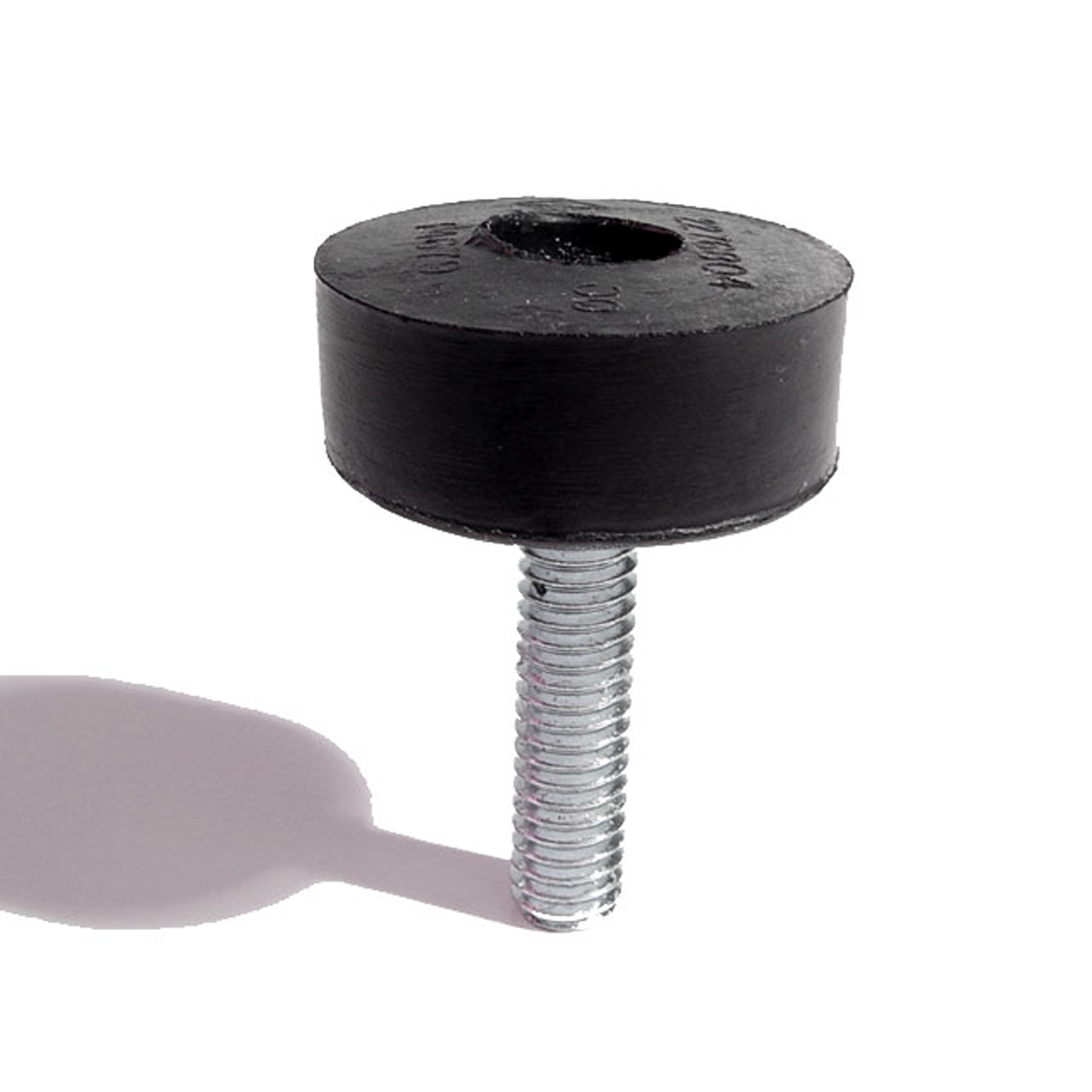 1971 Plymouth Cricket Hood Adjustment Bolt and Bumper-HA 8Hood Adjustment Bolt and Bumper. 1-3/16" diameter rubber head. 5/16" thick X 18 threads/inch X 1-1/4" long bolt. Each
1971 Plymouth Cricket Hood Adjustment Bolt and Bumper-HA 8Hood Adjustment Bolt and Bumper. 1-3/16" diameter rubber head. 5/16" thick X 18 threads/inch X 1-1/4" long bolt. Each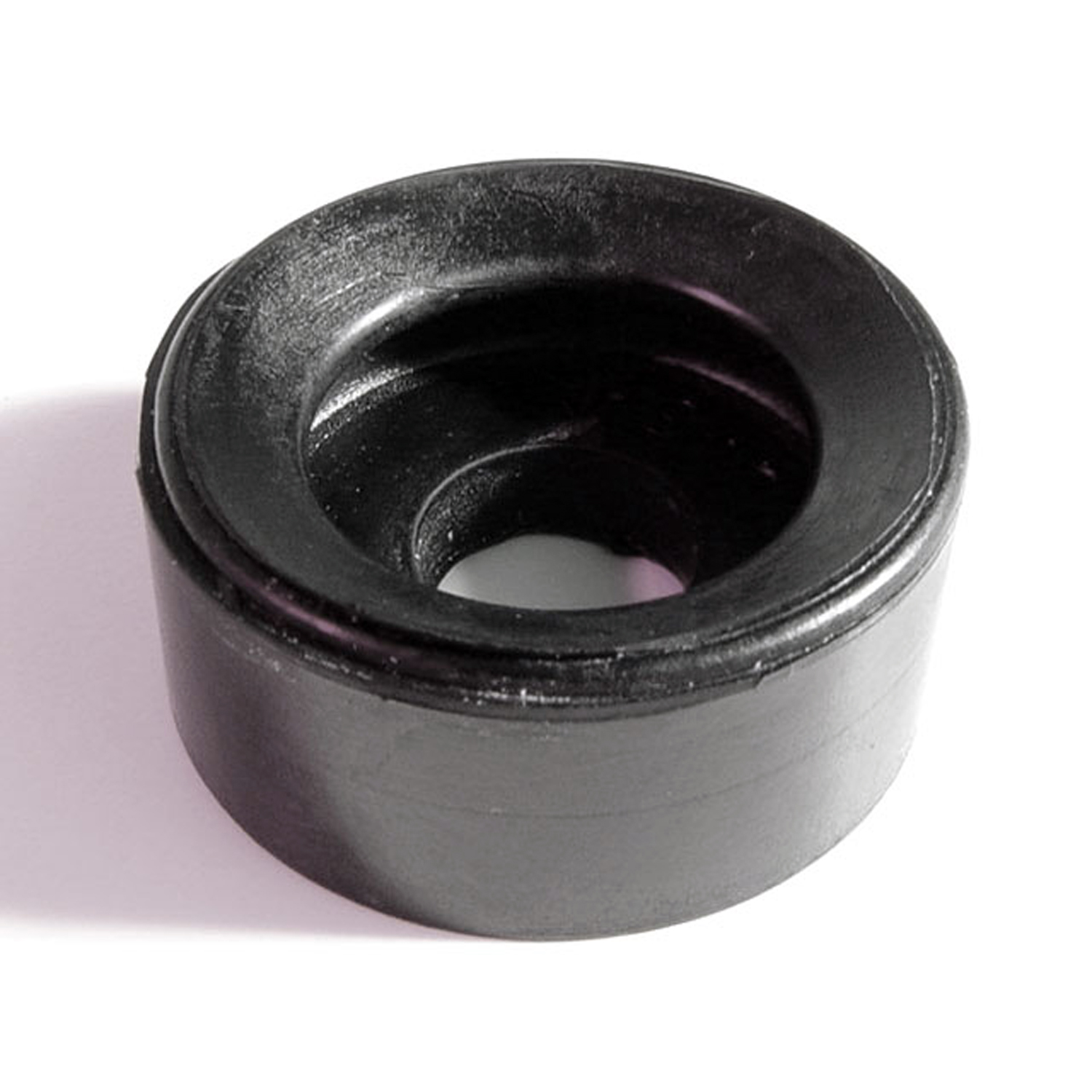 1971 Plymouth Cricket Hood Adjustment Bumper. 1-1/4" O.D-HA 8-AHood Adjustment Bumper. 1-1/4" O.D., 3/4" large hole, 7/16" small hole, 1/2" thick. Each
1971 Plymouth Cricket Hood Adjustment Bumper. 1-1/4" O.D-HA 8-AHood Adjustment Bumper. 1-1/4" O.D., 3/4" large hole, 7/16" small hole, 1/2" thick. Each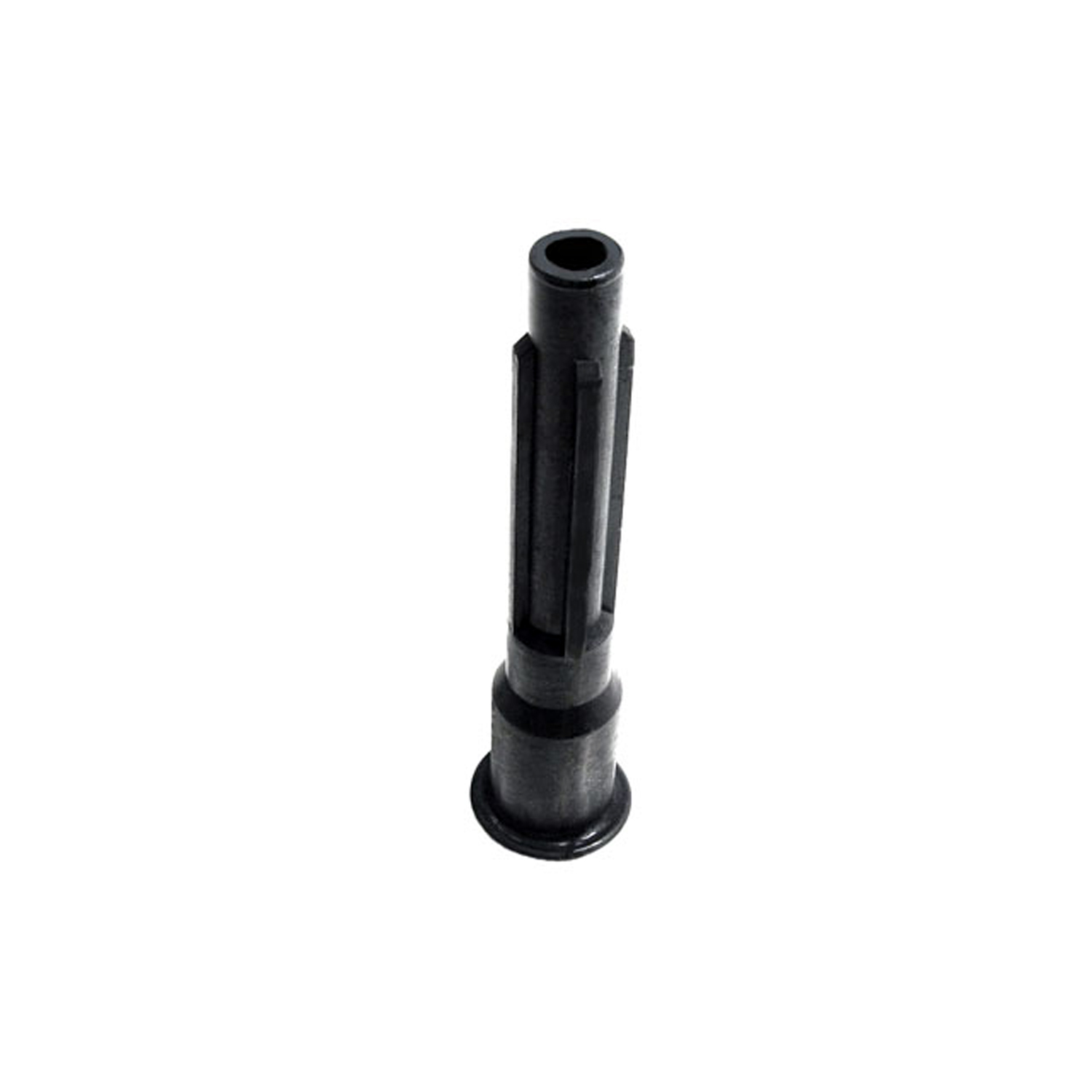 1971 Plymouth Cricket Flexible Spark Plug Boot, used on Hemi's with power brakes-RP 1-MFlexible Spark Plug Boot, used on Hemi's with power brakes. 4" long, 5/16" upper i.d., 5/8" lower i.d. Each
1971 Plymouth Cricket Flexible Spark Plug Boot, used on Hemi's with power brakes-RP 1-MFlexible Spark Plug Boot, used on Hemi's with power brakes. 4" long, 5/16" upper i.d., 5/8" lower i.d. Each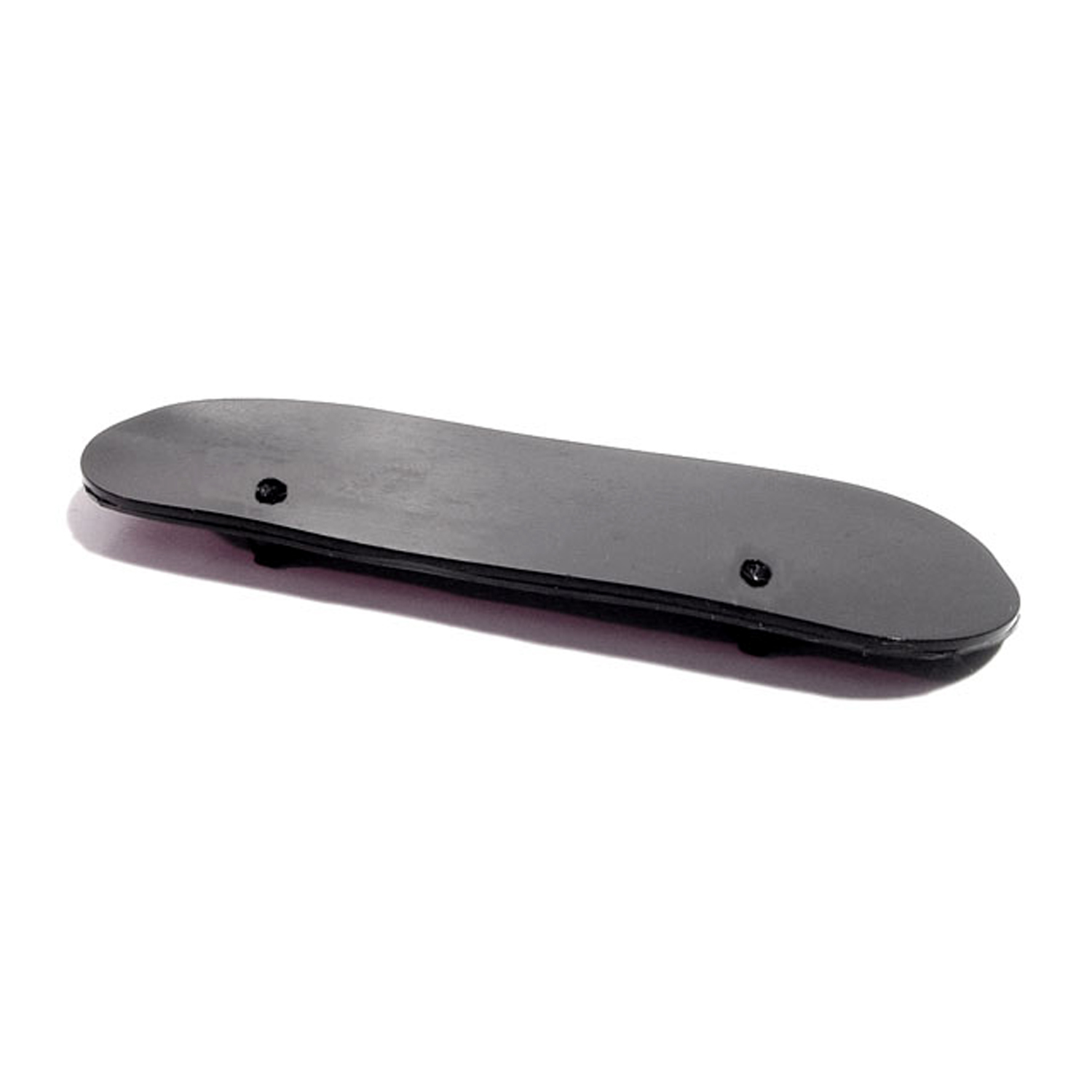 1971 Plymouth Cricket Drain Flap on Cowl. Each-RP 900-ADrain Flap on Cowl. Each
1971 Plymouth Cricket Drain Flap on Cowl. Each-RP 900-ADrain Flap on Cowl. Each 1971 Plymouth Cricket Nylon Lock Cylinder Gasket. 1-1/4" O.D., 7/8" I.D. Each-UM 2700-104Nylon Lock Cylinder Gasket. 1-1/4" O.D., 7/8" I.D. Each
1971 Plymouth Cricket Nylon Lock Cylinder Gasket. 1-1/4" O.D., 7/8" I.D. Each-UM 2700-104Nylon Lock Cylinder Gasket. 1-1/4" O.D., 7/8" I.D. Each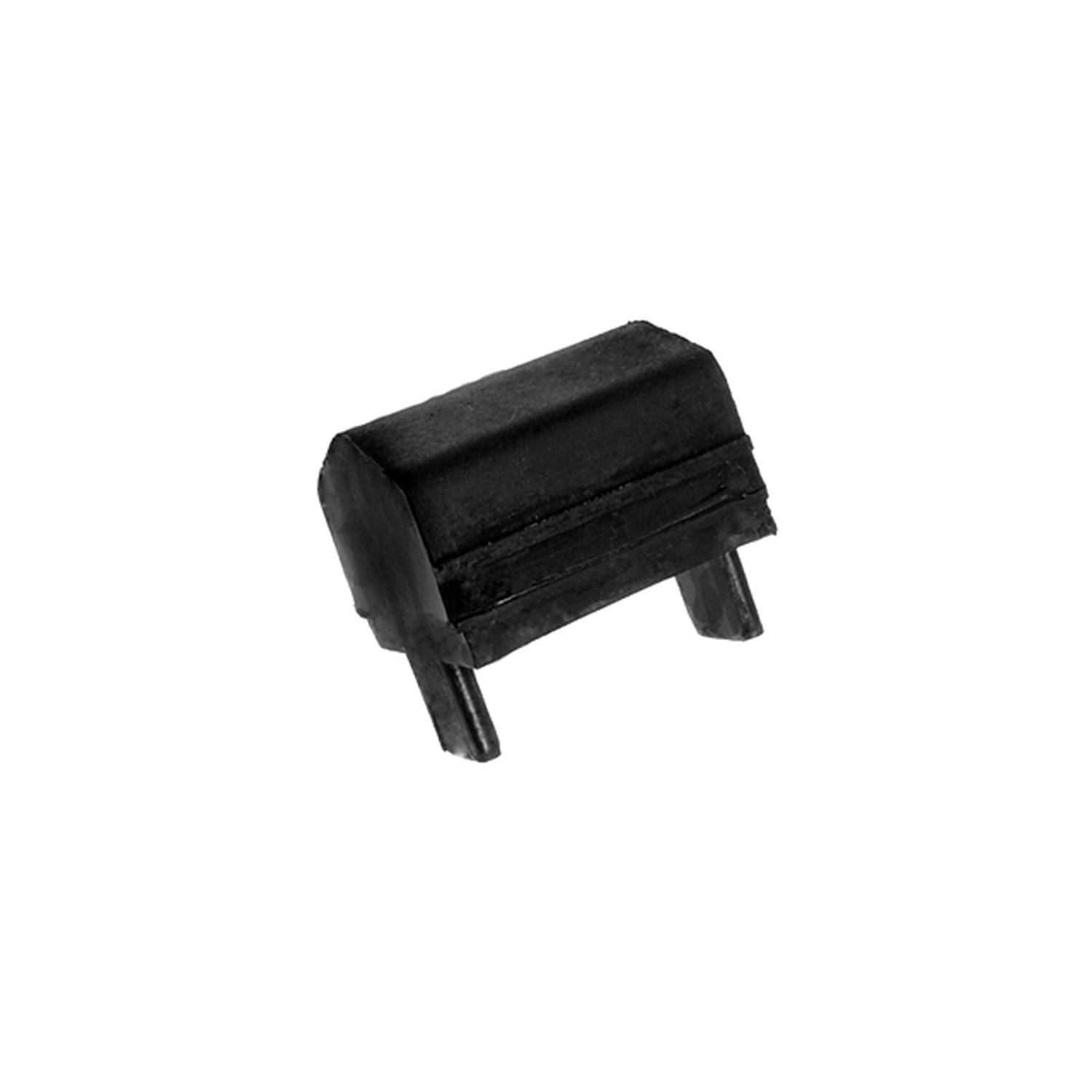 1971 Plymouth Cricket Rear Axle Pinion Snubber. Each-XB 80-ARear Axle Pinion Snubber. Each
1971 Plymouth Cricket Rear Axle Pinion Snubber. Each-XB 80-ARear Axle Pinion Snubber. EachWhy Choose Metro?
For over 100 years, Metro Moulded Parts has been the pinnacle of quality in classic car restoration parts. Our commitment to precision and authenticity in every component ensures a perfect fit and an OEM-level appearance.
- Expert Craftsmanship & Quality: Each part is a testament to our dedication to reliability and perfection, crafted from original designs and thoroughly tested.
- Advanced Technology: We use cutting-edge techniques to create flawless, long-lasting parts that surpass others in performance.
- SuperSoft Sponge – The Ultimate Door Seal: Not only are our door seals 30% softer than competitors', but they're also guaranteed to never leak. They effectively reduce wind and road noise, enhancing your classic car's comfort and driving experience.
- Proudly American: Our parts are a product of American craftsmanship, made in the USA with a spirit of excellence and heritage.
- Unrivaled Warranty: We back our products with a 30-year industry-leading warranty, a testament to our confidence in their quality.
Join us in preserving the legacy of classic cars with parts that are crafted for perfection, not just made.

